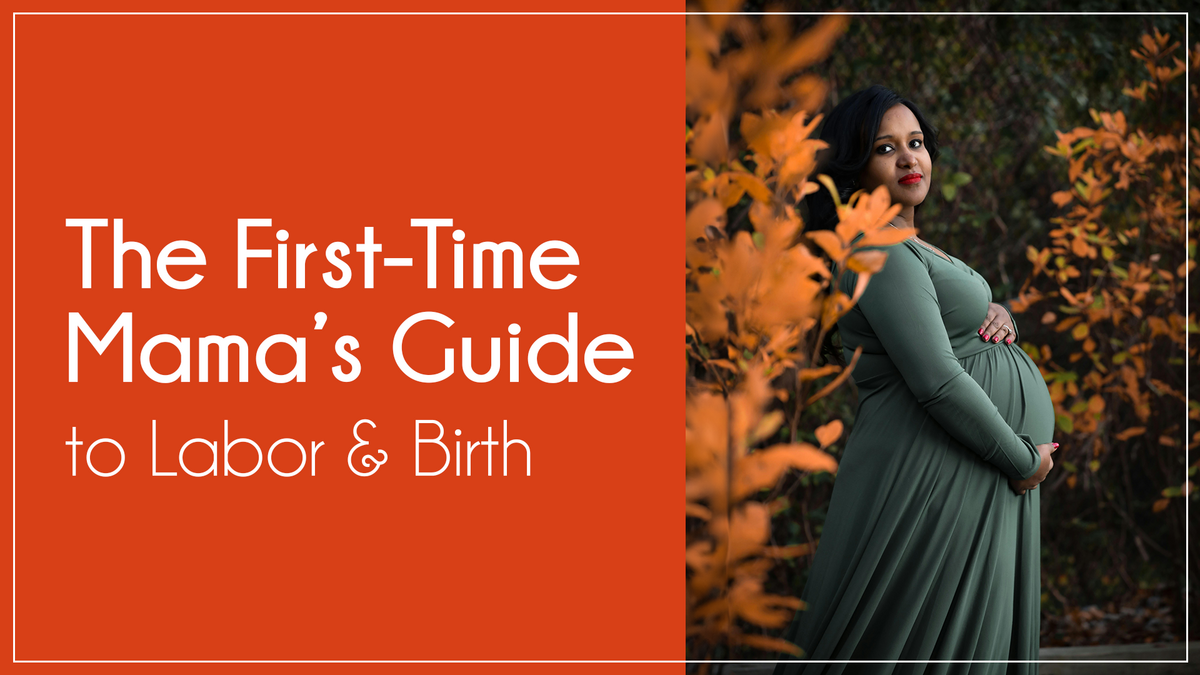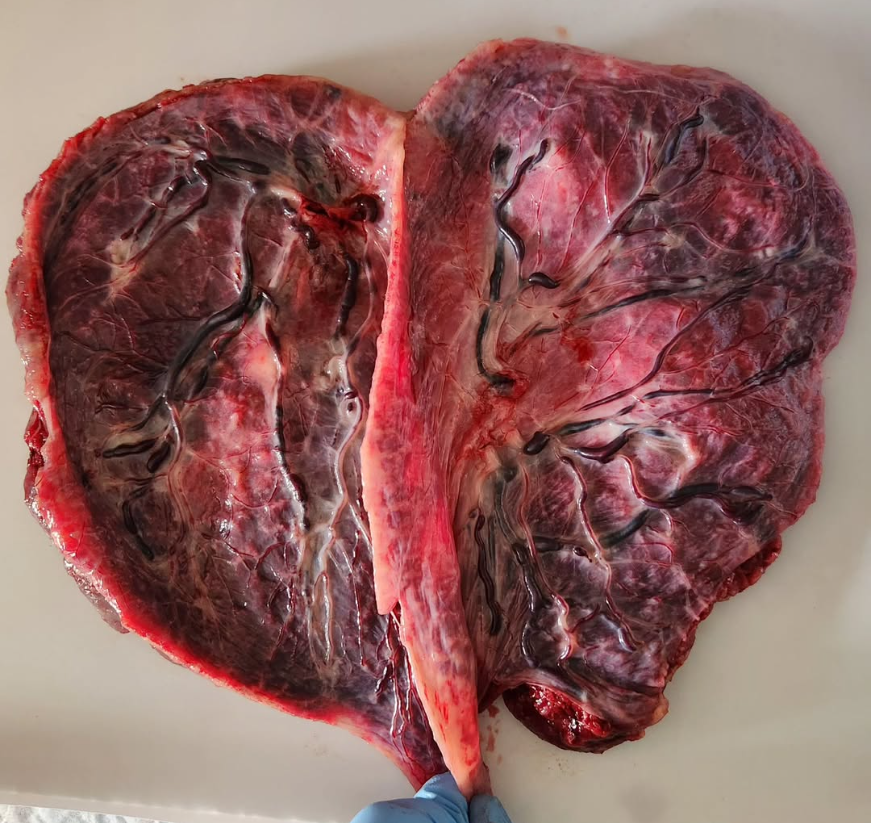The First-Time Mama's Guide to Labor and Birth

Have you been wondering how you’ll actually know when labor starts—or what it’ll feel like when it does? There’s a lot of guessing in the final stretch, and it’s completely normal to feel a little unsure.
You’re getting closer to meeting your baby, and while that’s exciting, it can also come with questions no one really prepares you for. That’s okay. You don’t need to have all the answers right now.
What helps most in this season is feeling supported, informed, and reminded that you have a say in how your birth unfolds. With a little insight into what labor might look like—and someone by your side who knows how to walk through it with you—you’ll be able to step into birth with more confidence and calm.
In this guide, we’ll walk through the stages of labor and how a doula can bring steady, thoughtful care when you need it most.

Understanding the Stages of Labor
Labor unfolds in distinct stages, each with its own physical and emotional shifts. Knowing what to expect can help you navigate the process easier. It also allows you to make more informed choices, tune in to your body, and know when to lean on your birth team.
All mamas experience labor a little differently but having a general understanding of how it often unfolds can help you feel more prepared and less caught off guard.
Stage 1: Early and Active Labor
This stage is usually the longest, and it can be broken into two parts: early labor and active labor.
Early Labor:
- Contractions begin but are irregular and mild.
- Cervix gradually dilates and effaces (thins out).
- You may experience a "bloody show" or lose your mucus plug.
- Resting, hydrating, and moving in comfortable positions can help.
This is a great time to relax at home if you feel comfortable. You might want to go for a walk, take a nap, or even bake some cookies. Your doula can check in with you during this phase and offer suggestions for comfort and pacing.
Active Labor:
- Contractions become stronger, longer, and closer together.
- Cervix dilates more rapidly (about 4-7 cm).
- You may experience increased pressure and discomfort.
- Relaxation techniques, movement, and emotional reassurance become key.
This is when many mamas head to their birthplace or call in their full support team. You might try changing positions, using water (like a shower or tub), or having your doula offer hands-on comfort techniques.

Stage 2: Pushing and Birth
Transition Phase:
- At the most intense phase, contractions peak, and dilation reaches 10 cm.
- You may feel pressure or the urge to push.
Transition is powerful. It can feel overwhelming, but it’s also a sign that you're almost there.
Many mamas feel shaky and emotional—which is often a sign that birth is near. Having a doula present to offer calm, grounding reassurance can make a huge difference in this phase.
Pushing Phase:
- With each contraction, you push to help your baby descend.
- Pushing can last a few minutes to a few hours, depending on various factors.
- A support team, including your doula, can provide encouragement and guidance.
This phase is more active, and you’ll work with your body’s cues. Your doula may help suggest positions or breathing patterns to help you feel effective and supported.

Birth of Baby:
- Your baby emerges, and immediate skin-to-skin contact is encouraged.
- Your care team ensures both you and your baby are stable and comfortable.
Meeting your baby for the first time is a moment like no other. If you’ve shared preferences for delayed cord clamping, immediate bonding, or other wishes, your doula can help make sure they’re communicated clearly.
Stage 3: Birth of the Placenta
This stage can feel like a blur after the excitement of birth, but it’s still an important part of the process.
- Contractions continue to help detach and deliver the placenta.
- You may receive uterine massage or medical support to prevent excessive bleeding.
- This is a great time for bonding with your baby and initiating breastfeeding.
Your doula stays with you through this phase, helping with comfort, emotional reassurance, and checking in on how you’re feeling physically and mentally.
How a Doula Can Support Your Birth Journey
A doula is a trained birth companion who provides emotional, physical, and informational support before, during, and after birth. Their presence can make a significant difference in your birth experience.
Learn more about why early doula support makes a difference here!
They don’t replace your partner or medical team—they enhance the support you receive.
Before Labor
- Helps you create a birth plan that aligns with your preferences.
- Educates you on labor positions, comfort techniques, and hospital policies.
- Offers emotional reassurance and answers any lingering questions.
Your doula will get to know your hopes, your fears, and your values. That way, when labor begins, you already have someone in your corner who truly understands what matters to you.
During Labor and Birth
- Provides continuous encouragement and guidance.
- Uses hands-on techniques like massage and counterpressure for comfort relief.
- Helps with movement, breathing exercises, and relaxation strategies.
- Advocates for your birth preferences and ensures your voice is heard.
Unlike medical staff who may rotate or need to manage multiple patients, your doula stays with you the whole time. Whether it’s helping you stay grounded in early labor or cheering you on during pushing, they’re there through it all. +
After Birth
- Supports the golden hour with skin-to-skin bonding.
- Assists with the first latch if you choose to breastfeed.
- Provides postpartum emotional and physical care guidance.
- Helps process your birth experience and offers resources for recovery.
The hours after birth can feel like a whirlwind. Your doula helps slow things down, making sure you feel cared for, informed, and not alone in your first moments of parenthood.
Embrace Birth with Confidence and Support
No two births are exactly the same, but every mama deserves to feel seen, heard, and supported through it all. The more you understand what to expect and who you can rely on, the more grounded and confident you’ll feel as labor unfolds.
At Stork Helpers, we’re here to walk with you—not to tell you how birth should go, but to help you feel empowered in the birth you choose. Whether you're still exploring your options or already creating your plan, having a doula in your corner can bring peace of mind and a steady hand when you need it most.
You’ve got this—and we’ve got you. Check our birth doula availability.
Don’t miss the best free pregnancy and doula content!
Follow Stork Helpers on Facebook and LinkedIn.
Happy with the difference Stork Helpers made in your pregnancy? Leave us a quick five-star review here!

